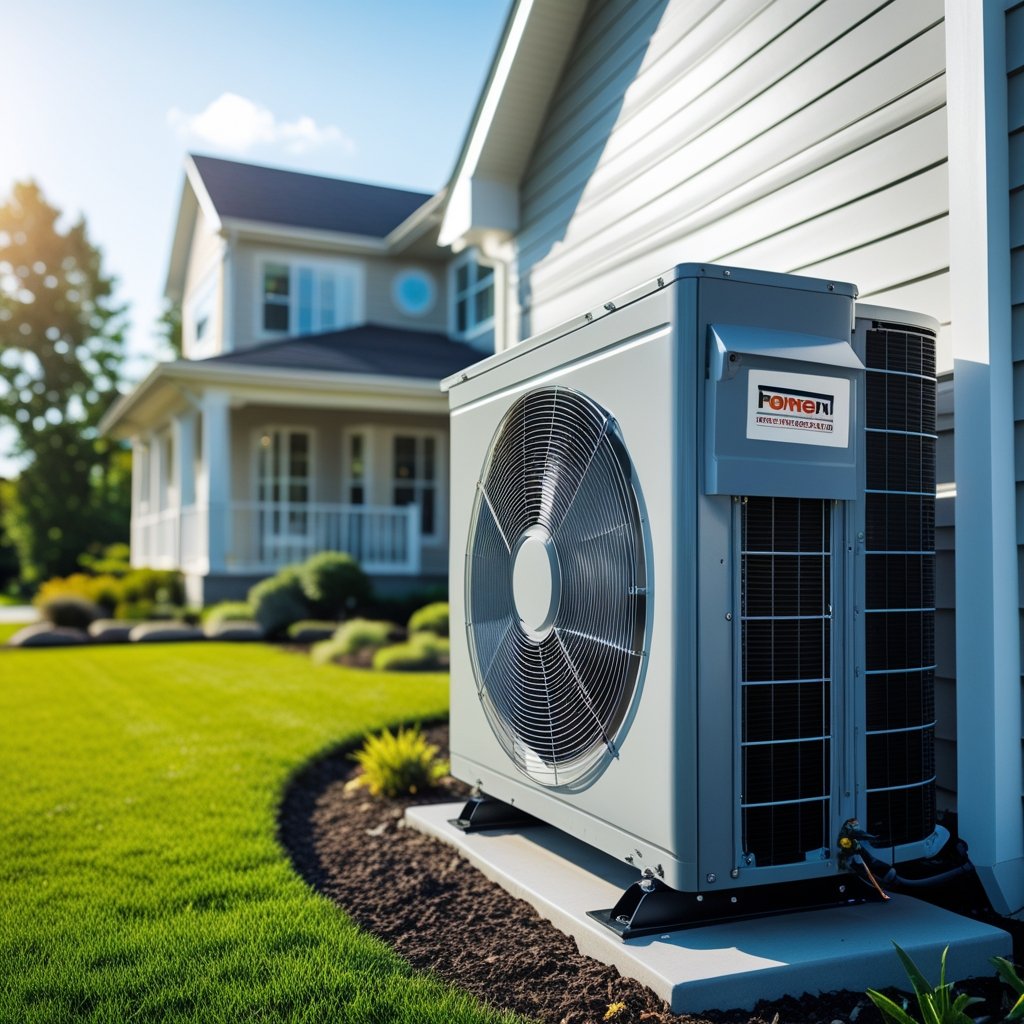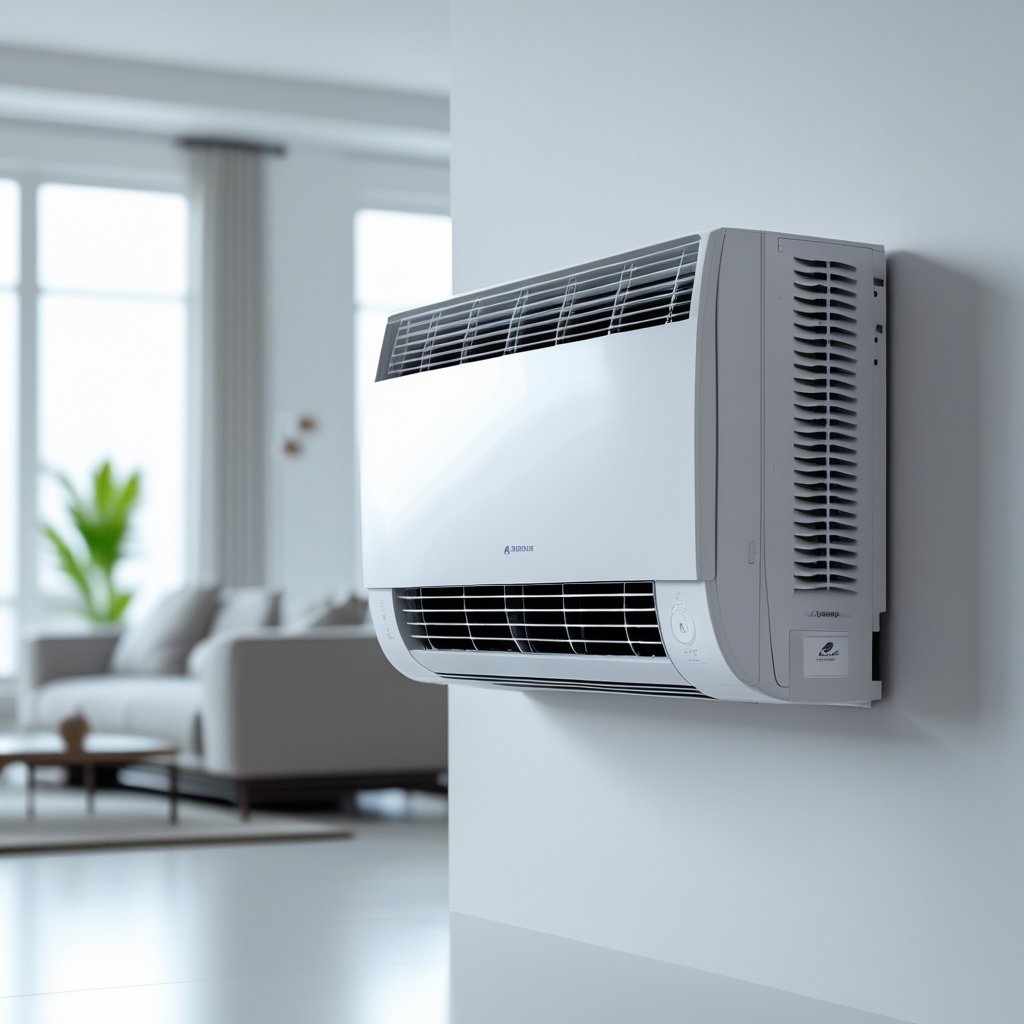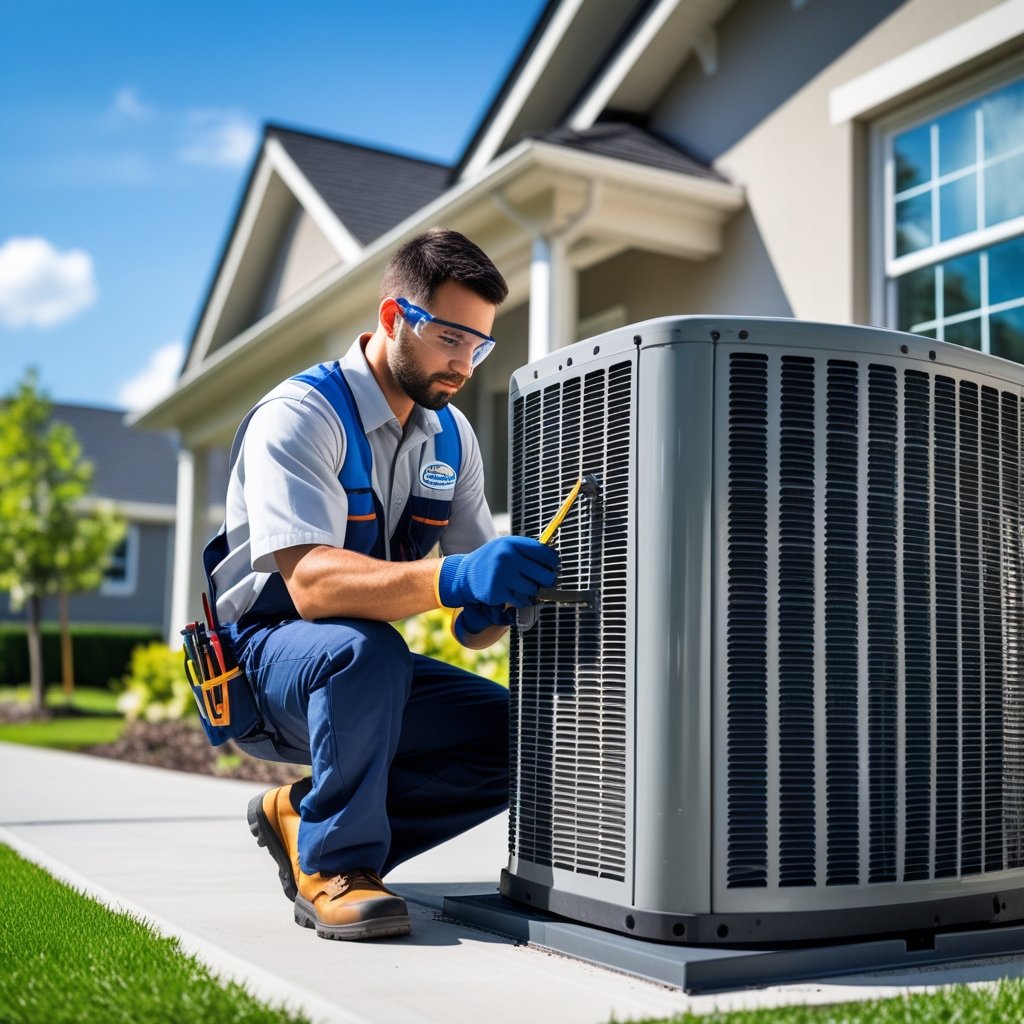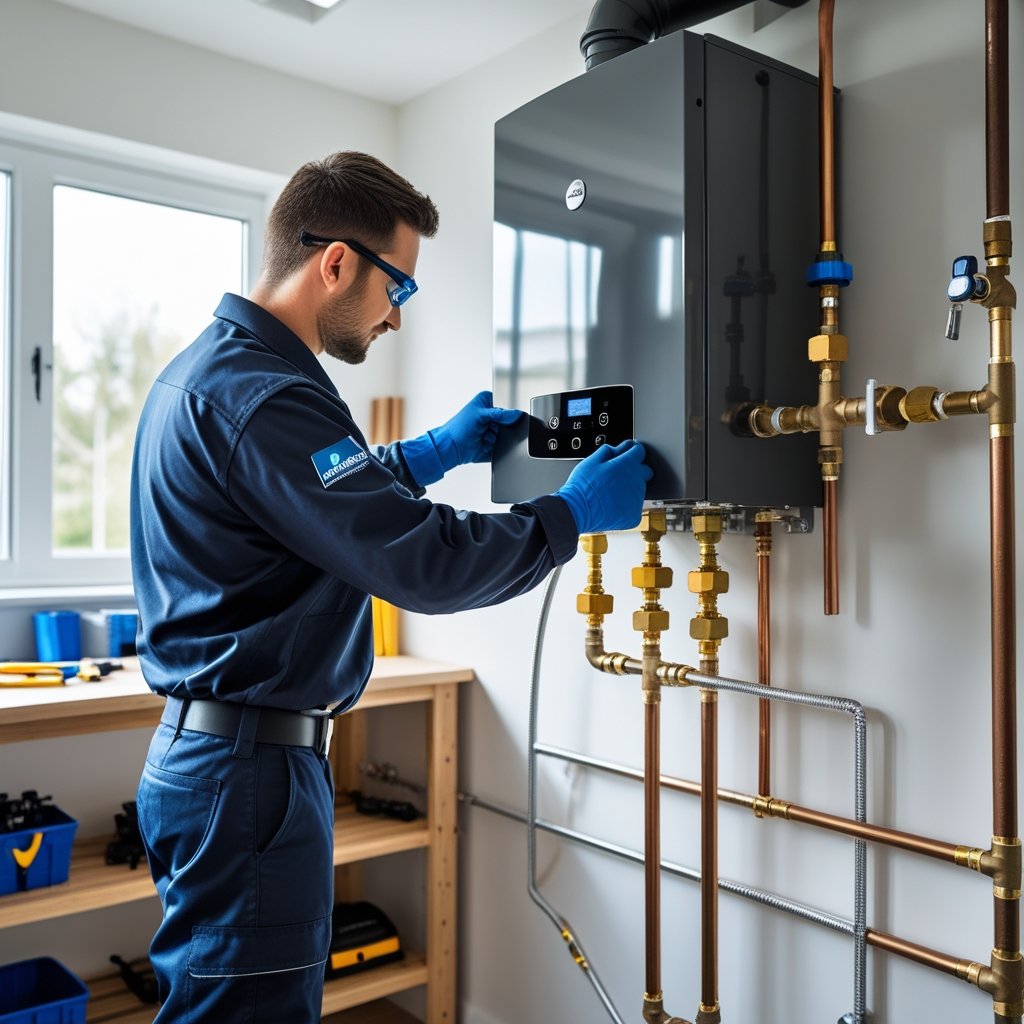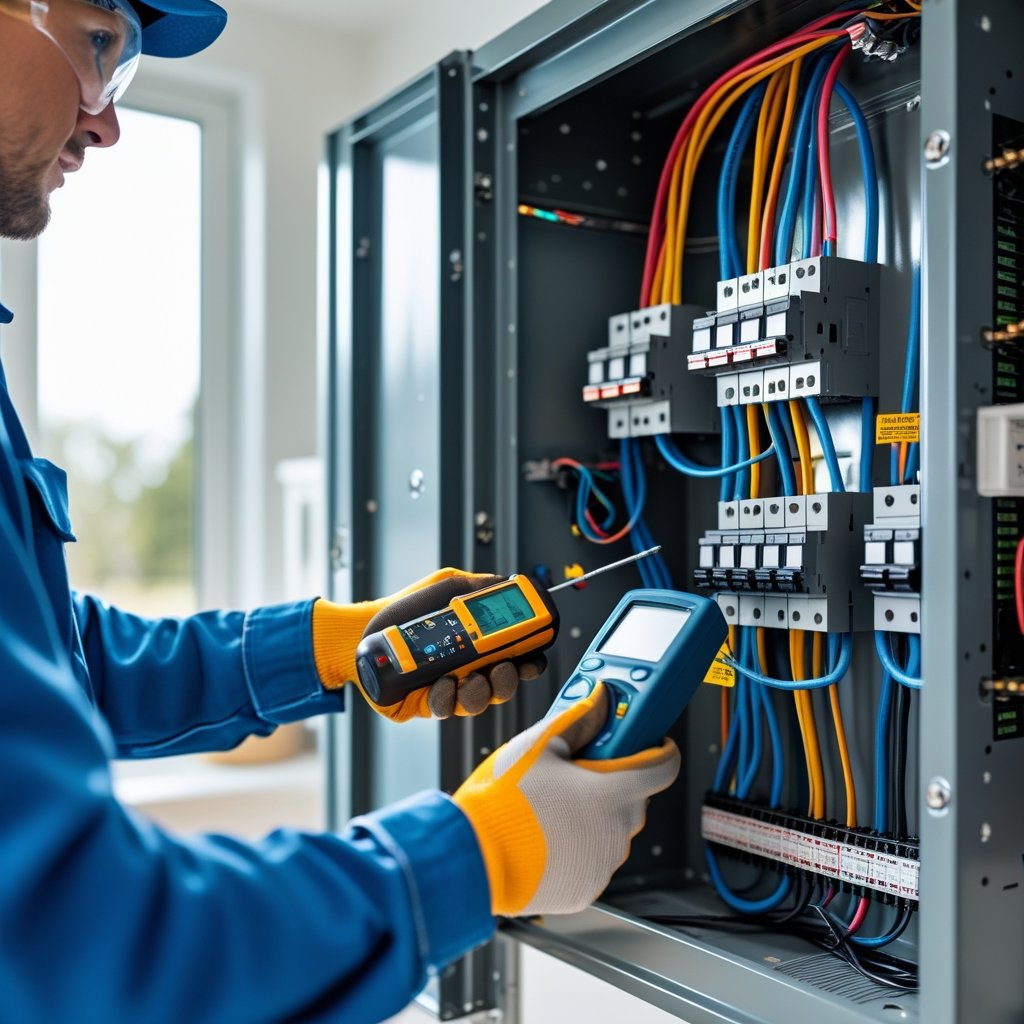If you’re thinking about upgrading your heating and cooling system in places like Elizabethtown or Lancaster County, you might wonder if heat pumps are worth it.
Heat pumps can save you money over time by using less energy than traditional systems. They keep your home comfortable all year round.
They work well for both heating in winter and cooling in summer. You only need one system.
Choosing a heat pump means investing a bit more up front. The energy efficiency and potential rebates can make it a smart choice for your home in Mount Joy, York, or Hershey.
Regular maintenance keeps your system running smoothly and extends its life. This gives you peace of mind through every season.
What Is a Heat Pump?
A heat pump is a system that moves heat instead of creating it by burning fuel. It can both heat and cool your home throughout the year.
You’ll find different types of heat pumps. Each has parts designed to keep your space comfortable and energy use low.
How Heat Pumps Work
Heat pumps use electricity to move heat from one place to another. In cold months, they pull heat from outside air or the ground and bring it inside.
During summer, the process reverses. The system pushes heat from inside your home out to cool it.
Because heat pumps move heat instead of producing it by burning fuel, they use less energy. They work best in milder winters like those in South Central Pennsylvania.
In very cold weather, you may need a backup system to keep your home warm.
Types of Heat Pumps
There are three common types: air-source, ground-source (also called geothermal), and mini-split heat pumps.
- Air-source pumps pull heat from outdoor air and are the most common in residential homes.
- Ground-source pumps use the earth’s stable underground temperature to heat and cool your home.
- Mini-split systems are compact and don’t need ductwork, making them ideal for upgrades or specific rooms.
Each type has its own installation needs and maintenance.
Key Components
A heat pump has several main parts that work together:
- Compressor: Moves refrigerant through the system and raises its temperature.
- Evaporator coil: Absorbs heat from the air or ground.
- Condenser coil: Releases heat into your home or outside when cooling.
- Expansion valve: Controls refrigerant flow and pressure between coils.
Proper maintenance keeps your heat pump running smoothly. Skilled technicians in Lancaster County and nearby towns can help with inspections and repairs to extend its life.
Are Heat Pumps Worth It?
Heat pumps can save you money and keep your home comfortable, but they come with some upfront costs. How well they work depends on your local weather and how long you plan to stay in your home.
You should consider what you spend now versus what you save later. Think about how a heat pump fits your climate.
Upfront Costs Versus Savings
Heat pumps usually cost more to install than traditional heating systems. The price depends on your home’s size and the type of heat pump, like a mini-split.
You might pay more at the start, but the system uses electricity efficiently, lowering your utility bills. In places like Lancaster County and Elizabethtown, you could save up to 30-40% on heating and cooling costs over time.
Heat pumps qualify for local rebates that reduce your initial cost. Regular maintenance keeps the system running well and helps avoid extra repair expenses.
Long-Term Value
Heat pumps often last 10 to 15 years when you maintain them properly. You get both heating and cooling in one system, so you don’t need separate units.
That saves space and often reduces installation hassles. With regular service from local pros like Leo Kob Co., you get steady performance.
Maintenance plans include early detection of small issues, priority scheduling, and repair discounts. This helps protect your investment and keeps energy bills low over time.
Heat Pump Performance in Different Climates
South Central Pennsylvania’s winters are cold but not extreme, which suits heat pumps well. They work best in mild to moderate climates by moving heat instead of creating it.
When it’s very cold, heat pumps may need backup heating for extra warmth. If you live in Lancaster, Mount Joy, or Hershey, a heat pump can handle your home’s needs efficiently.
Mini-split systems adjust power to each room, saving energy and offering better comfort in different spaces. Your local technician can help pick the right system for your home’s size and insulation.
Benefits of Installing a Heat Pump
Heat pumps offer a smart way to manage your home’s temperature while saving money and reducing environmental impact. They work efficiently all year and help keep your energy bills lower.
Energy Efficiency
Heat pumps use electricity to move heat rather than burning fuel, making them very energy efficient. You can save up to 30% or more on your heating and cooling bills, especially with newer models.
Modern heat pumps adjust their output to match exactly what your home needs. If your current system is old, upgrading to a high-efficiency heat pump can make a noticeable difference.
In Elizabethtown or Lancaster County, where winters and summers can vary, a heat pump maintains a steady temperature without wasting power. This can help you avoid big spikes in your energy costs.
Environmental Impact
Since heat pumps don’t burn gas or oil to heat your home, they produce fewer carbon emissions. This helps improve air quality and lowers your carbon footprint.
Using electricity also means you can pair a heat pump with renewable energy sources if you choose. In South Central Pennsylvania, where air quality is a concern, switching to a heat pump supports cleaner air.
It’s a practical way to contribute to environmental health while staying comfortable. Many local programs offer rebates on heat pump installation, making it more affordable for homeowners.
Year-Round Comfort
Heat pumps provide both heating and cooling from one system. You get reliable comfort no matter the season.
They work by moving heat in or out of your home, which keeps your indoor temperature steady. This avoids sharp swings common with some furnaces or AC units.
If you live in places like York or Hershey, a heat pump can handle cold winters and hot summers efficiently. Mini-split models are especially good for adding comfort to specific rooms with less energy use.
Regular maintenance helps keep your system running smoothly for years. This gives you peace of mind in your investment.
Potential Drawbacks to Consider
Heat pumps offer many benefits, but there are some important things you should know before deciding on one. Installation can be tricky, these systems need regular upkeep, and noise might be a concern depending on the type you pick.
Installation Challenges
Installing a heat pump can be more complex than a traditional HVAC system. You often need a professional who knows how to set up the unit properly to get the best performance.
For homes in Elizabethtown, Lancaster, or York, the local climate and home insulation will affect how well the system works. If you’re thinking about a mini-split heat pump, mounting indoor units and connecting them to the outdoor compressor can require careful planning.
Some older homes may need upgrades to wiring or ductwork before installation. Also, permits and inspections might come into play, so factor in extra time and costs.
Maintenance Requirements
Keeping a heat pump in good shape means regular maintenance. Unlike some heaters that you can largely ignore after installation, a heat pump needs checkups to keep running efficiently.
You should plan for annual service visits, like cleaning filters and checking refrigerant levels. Here in South Central Pennsylvania, where you might use your heat pump throughout the year, maintenance helps prevent breakdowns before winter or summer.
Leo Kob Co. offers reliable HVAC tune-ups that include testing and adjusting key parts. This helps your system last longer and save energy.
Staying on top of maintenance will give you peace of mind without unexpected repair bills.
Noise Levels
Heat pumps, especially the outdoor units, can produce noticeable noise. Some models run quieter than others, but the compressor and fan can create a hum or drone.
If your home in Mount Joy or Hershey has neighbors close by, noise might be a factor to consider. Indoor units on mini-split systems are often quiet, but outdoor units might be louder during startup or cold weather.
Modern systems are designed to reduce noise, but older or improperly installed models might bother you. Planning where to place the outdoor unit can help reduce loud sounds inside or outside your home.
Comparing Heat Pumps to Other Heating and Cooling Systems
Heat pumps offer a different way to heat and cool your home compared to traditional systems. They work by moving heat instead of producing it, which can boost energy savings.
Below, you’ll see how heat pumps stack up against furnaces, air conditioners, and boilers in terms of efficiency, cost, and maintenance.
Heat Pumps vs. Furnaces
Furnaces burn fuel like natural gas or oil to make heat. Heat pumps don’t burn fuel—they move heat from outside to inside your home, even when it’s cold.
This makes heat pumps more energy-efficient, often cutting your heating costs by 30% to 40%. Furnaces usually heat faster, which can feel better on very cold days.
But heat pumps provide steady warmth and cool your home too, acting like a built-in air conditioner. Maintenance for heat pumps is usually less expensive since they don't have burners or vents to clean.
If you live in Lancaster County, where winters are cold but not extreme, a heat pump can handle your heating and cooling needs year-round.
Heat Pumps vs. Air Conditioners
Air conditioners only cool your home by removing heat from inside and sending it outside. Heat pumps do that and also work in reverse to heat your home.
This means one system can replace both your AC and your furnace. Heat pumps use less electricity than traditional air conditioners when cooling because they move heat rather than generate cold air.
For summers in Elizabethtown and York, a heat pump can keep your home comfortable efficiently. The cost to install a heat pump tends to be higher than for just an AC unit, but the energy savings through the year can balance out the price.
Repair and maintenance are similar for both systems.
Heat Pumps vs. Boilers
Boilers heat your home by warming water or steam and sending it through pipes or radiators. This method provides steady, even heat but only works for heating, not cooling.
Heat pumps give you both heating and cooling, making them more versatile. They also tend to have lower energy bills because they don’t burn fuel but use electricity to move heat.
Boiler maintenance includes checking for leaks and pressure, which can be tricky. In areas like Mount Joy and Hershey, where homes may have older boiler systems, upgrading to a heat pump can reduce energy costs and simplify climate control with one system managing both heat and air conditioning.
Incentives and Rebates for Heat Pumps
You can save money through various programs when installing a heat pump. These savings come from government tax credits and local utility company rebates.
Knowing what options you qualify for helps reduce the upfront cost of upgrading your HVAC system.
Government Incentives
The federal government offers tax credits that cover 30% of your heat pump installation costs. You can claim this credit on up to $3,200 in expenses each year through 2032.
This includes both equipment and installation, which can make a big difference in your final bill. These credits are available to homeowners in places like Elizabethtown, Lancaster, and York.
To claim them, keep detailed receipts and work with your HVAC contractor on proper paperwork. If you add other energy-efficient upgrades, such as better insulation, you might get even more tax relief.
Utility Company Rebates
Local utility companies in South Central Pennsylvania often run rebate programs for heat pump installations. These rebates can range from a few hundred to several thousand dollars, depending on your system and utility provider.
You might get a rebate for installing an energy-efficient mini-split or a full heat pump system. Utility companies may also offer advice and help you apply for these rebates.
Always check with your utility before installing, so you know what programs are currently available in Lancaster County or Mount Joy.
Here’s what to expect in rebates:
- Application assistance from the utility
- Specific energy efficiency requirements
- Limits on rebate amounts based on heat pump type
These rebates make upgrading your HVAC more affordable and help lower your energy bills over time.
Is a Heat Pump Right for Your Home?
Choosing a heat pump means looking closely at how your home uses heating and cooling. Think about your current system, local climate, and home size.
Work with trusted installers in your area. This ensures your heat pump runs well and lasts long.
Assessing Your Home’s Needs
Start by checking your current heating and cooling setup. If you use an older system, a heat pump can save energy by moving heat instead of creating it.
Homes that are well insulated and sealed keep heat where it belongs. This makes heat pumps more effective.
Consider your local weather in Lancaster County, Elizabethtown, or York. Heat pumps work best where winters are mild to moderate.
If you have very cold winters, you may need a supplemental heat source. Here’s what matters most:
- Size of your home and layout
- Roof and wall insulation
- Local climate conditions
- Your budget and energy goals
A professional home energy assessment can help you see if a heat pump fits your house and lifestyle.
Working With Qualified Installers
Choosing the right installer is key to a smooth heat pump setup. Look for local experts who know South Central Pennsylvania homes well, including areas like Mount Joy and Hershey.
A good installer will inspect your home’s heating and cooling needs. They recommend the right heat pump size and model.
They handle permits and local regulations. You get clear pricing with no upsell pressure.
They also provide reliable service and long-term support. Leo Kob Co., family-owned since 1904, serves these communities with honest advice and skilled workmanship.
They focus on “quality service at a fair price” and help you get the most from your investment. Good installation keeps your system efficient longer and avoids costly repairs.
Always ask for references or reviews before you commit.
Frequently Asked Questions
Heat pumps can save you money on energy and offer a reliable way to heat and cool your home. They usually last many years with proper care.
You might qualify for local rebates by switching to a heat pump. Maintenance is important but not difficult.
Performance can vary in very cold weather.
Can heat pumps really lower my energy bills?
Yes, heat pumps use less electricity than traditional heating systems, which can reduce your energy costs. Modern models are even more efficient, which helps keep bills lower.
In South Central Pennsylvania, many homeowners see savings after switching.
How long does a typical heat pump system last?
With regular maintenance, a heat pump can last around 10 to 15 years. Cleaning filters and checking refrigerant levels help extend its life.
Timely repairs also prevent small issues from shortening your system’s lifespan.
What's the difference between a heat pump and a traditional furnace?
A heat pump moves heat in and out of your home, providing both heating and cooling with one system. A traditional furnace only produces heat, usually with gas or oil.
Heat pumps tend to use less energy because they transfer heat rather than generate it.
Are there any government incentives for installing heat pumps?
Yes, there are often rebates and tax credits available, especially on newer, energy-efficient models. These can help lower your upfront costs.
Local utilities in Lancaster County and surrounding towns sometimes offer additional rebates too.
How do heat pumps perform in extremely cold climates?
Heat pumps work best in moderate cold but can struggle in very low temperatures. Some models include backup heating or inverter technology to adjust power use.
For homes in Elizabethtown or York, heating performance is usually reliable with proper system design.
Is maintenance for heat pumps costly or complicated?
No, maintenance is generally simple and affordable. You can keep your system running well by cleaning or replacing filters and checking for blockages.
Regular professional check-ups in places like Lancaster and Mount Joy help catch problems early. These services do not require high costs.

